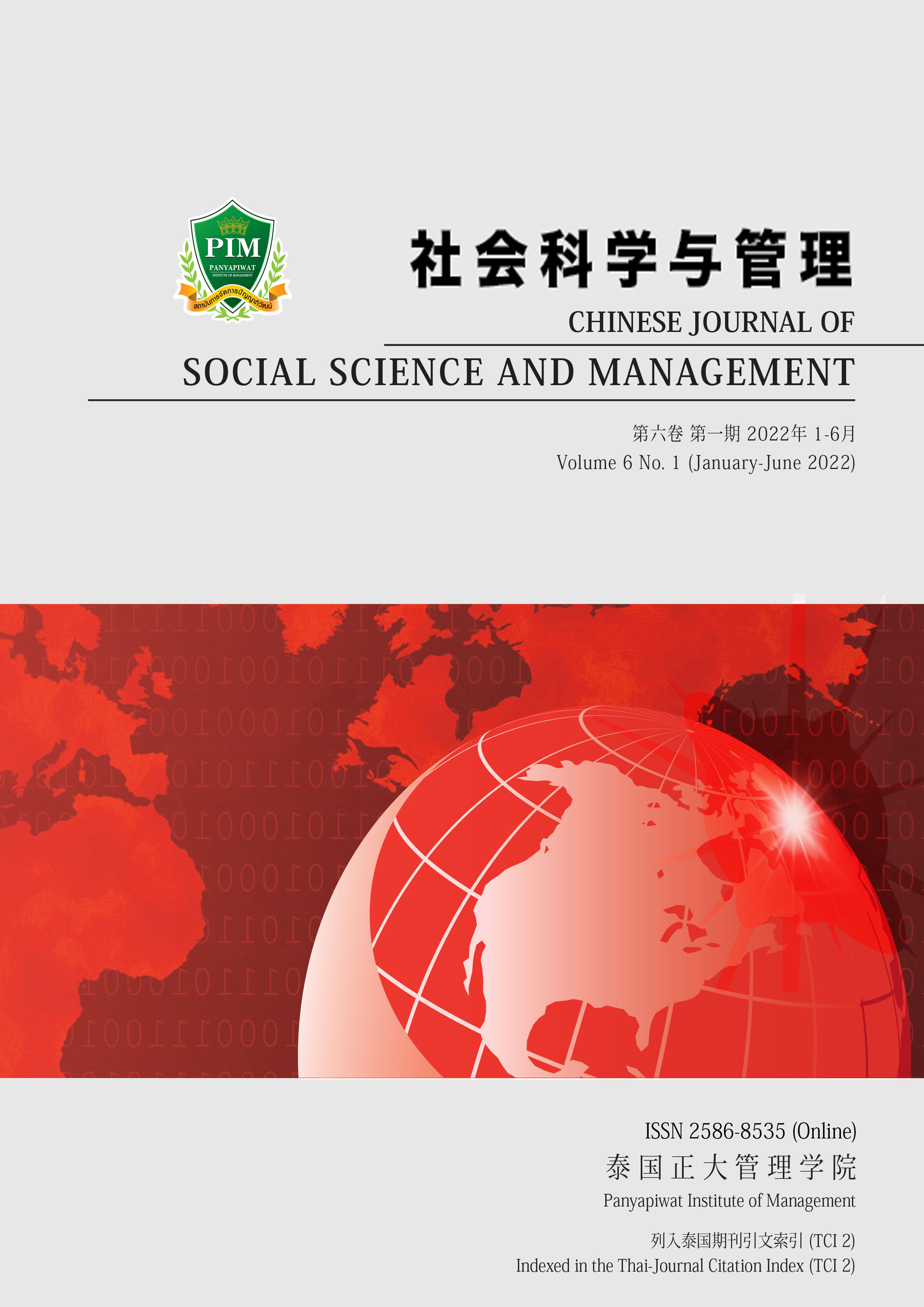SENIOR EXECUTIVES’ INCENTIVE, R&D INVESTMENT AND FIRM PERFORMANCE——THE MODERATING EFFECT OF MANAGERIAL DISCRETION
Main Article Content
Abstract
In order to better alleviate the contradiction of inconformity between the goals of senior management and shareholders in corporate governance and to enable enterprises to achieve better performance in the fierce market competition, this paper collected data samples of 1, 454 listed Chinese manufacturing enterprises and used Generalized Estimating Equations (GEE) to conduct multiple regression analysis on the research models. The results showed that the implementation of executive incentives could significantly promote research and development (R&D) investment and improve the firms’ performance. Furthermore, it could verify that certain management discretion could strengthen the influence of R&D investment on the firms’ performance. This would indicate that effective executive incentives and appropriate management discretion would provide strong support
for the enterprises to build core competitiveness.
Article Details

This work is licensed under a Creative Commons Attribution-NonCommercial-NoDerivatives 4.0 International License.
Chinese Journal of Social Science and Management Editorial Division
The Office of Research and Development, Panyapiwat Institute of Management
85/1 Moo 2, Chaengwattana Rd., Bang Talat, Pakkred, Nonthaburi 11120, Thailand
Tel. 02 855 01048 E-mail: cjssm@pim.ac.th
References
Aggarwal, R., & Sanwich, A. (2006). Empire-builders and shirkers: Investment, firm performance, and managerial incentives. Journal of Corporate Finance, 12(3), 489-515.
Ataay, A. (2018). CEO outsiderness and firm performance in an emerging economy: The moderating role of managerial discretion. Journal of Management & Organization, 36(10), 1-17.
Bulan, L., & Sanyal, P. (2011). Incentivizing managers to build innovative firms. Annals of Finance, 7(2), 267-283.
Chen, X. (2017). Case analysis on executive incentives, R&D investment and corporate performance moderating effect. Statistics & Decision, (1), 178-181. [in Chinese]
Grossman, S. J., & Hart, O. D. (1983). An analysis of the principal-agent problem. Journal of the Econometric Society, (1), 7-45.
Hambrick, D. C. (2007). Upper echelons theory: An update. Academy of Management Review, 32(2), 334-343.
Hambrick, D. C., & Finkelstein, S. (1987). Managerial discretion: A bridge between polar views on organizations. Research in Organizational Behavior, 9(2), 369-406.
Hambrick, D. C., & Mason, P. A. (1984). Upper echelons: The organization as a reflection of its top managers. Academy of Management Review, 9(2), 193-206.
Hambrick, D. C., Humphrey, S. E., & Gupta, A. (2015). Structural interdependence within top management teams: A key moderator of upper echelons predictions. Strategic Management Journal, 36(3), 449-461.
James, B. E., & McGuire, J. B. (2016). Transactional-institutional fit: Corporate governance of R&D investment in different institutional contexts. Journal of Business Research, 69(9), 3478-3486.
Jensen, M. C., & Meckling, W. (1976). Theory of the firm: Managerial behavior, agency costs and capital structure. Journal of Financial Economics, (3), 305-360.
Jensen, M. C., & Murphy, K. J. (1990). Performance pay and top management incentives. Journal of Political Economy, (2), 225-264.
Li, J. T., & Tang, Y. (2010). CEO hubris and firm risk taking in China: The moderating role of managerial discretion. Academy of Management Journal, 53(1), 45-68.
Li, Z. K. (2017). An study on the relationship between executive incentive and firm performancebased on the mediating effect of R&D investment. Communication of Finance and Accounting, (35), 31-36, 129. [in Chinese]
Lian, Y. L., He, X. G., Zhou, B., & Wen, M. (2015). Performance aspiration, managerial discretion and strategic change: An empirical study in China. Economic Research Journal, 50(8), 31-44. [in Chinese]
Liang, K. Y., & Zeger, S. L. (1986). Longitudinal data analysis using generalized linear models. Biometrika, (73), 13-22.
Liu, Y. X., & Qi, H. J. (2019). Will managers’ confidence affect perks? On the external corporate governance effect of margin trading system. Management Review, 31(4), 187-205. [in Chinese]
Qi, X. H., Wang, W., & Wu, Z. Y. (2016). Research on the relationship between R&D investment and company performance under the moderating effect of executive incentive . Science & Technology Progress and Policy, 33(15), 76-82. [in Chinese]
Quigley, T. J., & Graffin, S. D. (2017). Reaffirming the CEO effect is significant and much larger than chance: A comment on Fitza. Strategic Management Journal, 38(3), 793-801.
Sirén, C., Patel, P. C., Örtqvist, D., & Wincent, J. (2018). CEO burnout, managerial discretion, and firm performance: The role of CEO locus of control, structural power, and organizational factors. International Journal of Strategic Management, 51(6), 953-971.
Wang, H. Y., & Zhu, H. P. (2018). Research on the relationship between R&D investment and corporate performance—Adjustment effect based on executive incentive. Communication of Finance and Accounting, (17), 28-33, 129. [in Chinese]
Wang, T. N., Wang, Y., & Zhao, F. (2017). Environmental factors, CEO overconfidence and IT investment performance. Management World, (9), 116-128. [in Chinese]
Wang, Y. N. (2011). The influence of top management incentives on R&D investment—Evidence from listed manufacturing companies in China. Studies in Science of Science, 29(7), 1071-1078. [in Chinese]
Wen, Z. L., Hou, T. J., & Zhang, L. (2005). A comparison of moderator and mediator and their applications. Acta Psychologica Sinica, (2), 268-274. [in Chinese]
Wu, J., & Tu, R. (2007). CEO stock option pay and R&D spending: A behavioral agency explanation. Journal of Business Research, 60(5), 482-492.
Yang, X. L., & Xie, L. (2018). Product market competition, executive incentives and innovation investment. Communication of Finance and Accounting, (30), 69-72. [in Chinese]
Yin, M. Q., Sheng, L., & Li, W. B. (2018). Executive incentive, innovation input and corporate performance: An empirical study based on endogeneity and industry categories. Nankai Business Review, 21(1), 109-117. [in Chinese]
Youssef, M. S. H., & Da, T. (2018). Reaffirming the importance of managerial discretion in corporate governance: A comment on Andersen. Corporate Governance. International Journal of Business in Society, 19(2), 240-254.
Zhang, R. J., Li, X. R., & Xu, N. X. (2013). Do cash compensation on encourage managers taking risk? Economic Theory and Business Management, (8), 84-100. [in Chinese]


